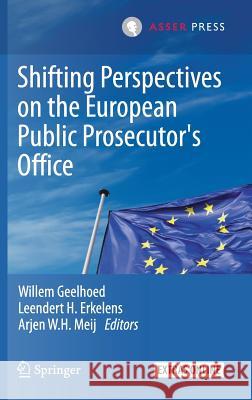Shifting Perspectives on the European Public Prosecutor's Office » książka
topmenu
Shifting Perspectives on the European Public Prosecutor's Office
ISBN-13: 9789462652156 / Angielski / Twarda / 2018 / 198 str.
Kategorie:
Kategorie BISAC:
Wydawca:
T.M.C. Asser Press
Język:
Angielski
ISBN-13:
9789462652156
Rok wydania:
2018
Wydanie:
2018
Ilość stron:
198
Waga:
0.46 kg
Wymiary:
23.39 x 15.6 x 1.27
Oprawa:
Twarda
Wolumenów:
01
Dodatkowe informacje:
Wydanie ilustrowane











